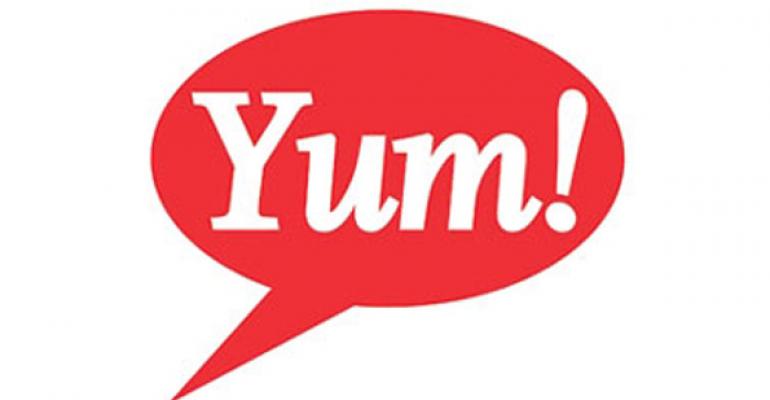As expected, an outbreak of avian influenza in and around Shanghai wreaked havoc on same-store sales in April for Yum! Brands Inc.'s China division, but several securities analysts believe the severe setback could be short-lived.
The analysts who cover Louisville, Ky.-based Yum's stock wrote that the company's 29-percent decline in same-store sales in China in April was essentially in line with the company's previous guidance. The figure included a 36-percent drop-off in sales at the nearly 4,400 locations of KFC in China, partially offset by a 5-percent gain at Pizza Hut, which has nearly 1,000 units in China.
Yum officials, however, have said that sales likely would recover after a few months from the avian flu scare, as they had in 2005 after a similar outbreak in China. They also projected slightly positive same-store sales in China by the fourth quarter of this year.
RELATED
• Yum 1Q profit drops 27%
• Yum China 1Q sales fall 20 percent
• Same-store sales at NRN.com
While plummeting sales at KFC in April unsurprisingly matched projections, other factors make Yum China's generally agreed-upon time table for sales recovery less certain, wrote Andy Barish of Jefferies LLC. "Media coverage has quieted, and it appears that the number of confirmed cases may be leveling out," Barish wrote. "Additionally, some cities like Shanghai have been able to help curb the spread by shutting down live poultry markets."
Still, he noted, this strain of avian flu appears to be more severe, with a higher mortality rate for chickens afflicted with it than previous strains in prior years. Officials also have little understanding of how avian flu gets spread, he wrote.
David Tarantino of Robert W. Baird & Co. wrote that investors mostly agree with Yum management's projections that the avian-flu scare would affect sales in China for a few months and that same-store sales should still be able to swing positive by the fourth quarter of 2013.
"Based on prior experience with past flu outbreaks, management believes trends can improve fairly quickly as flu concerns subside," Tarantino wrote. "While optimistic that trends can rebound, we note that the timing and the trajectory of the expected recovery remain extremely difficult to predict."
Both Tarantino and Barish project second-quarter same-store sales in China to decrease more than 20 percent but then sequentially improve to a 5-percent decline in the third quarter and a 5-percent increase in the fourth quarter.
Another analyst, Bryan Elliott of Raymond James & Associates, wrote in a separate note that he also expected Yum China's same-store sales to fall 22 percent in the second quarter. However, he would not project sales trajectories for the second half of the year, noting that much of the operating environment there is uncertain.
"Long-term investors seem very comfortable endorsing management's view that the significant sales weakness in China over the past five months will prove temporary and that China comps will turn positive in the fourth quarter, followed by a full recovery to trend growth in 2014 and beyond," Elliott wrote. "We continue to believe the risks to Yum's China business — including rising competition, lingering impact of recent events on consumer brand perceptions, and potential permanent supply chain cost increases to ensure food safety — are higher than the market believes."
Separately, Yum's China division was cleared of all implications in another Chinese supply chain issue, this time involving the supply of mutton investigated by Chinese officials and erroneously linked to Yum's Little Sheep casual-dining chain. According to a report in the Wall Street Journal, the Shanghai Municipal Food Safety Committee said Friday on its website that the agency mistakenly connected Little Sheep to sales of questionable "New Zealand Sliced Lamb" that officials seized after raiding a supplier last week.
At 450 locations, Little Sheep is a much smaller part of Yum's 5,480-unit China division.
The operator or franchisor of KFC, Pizza Hut and Taco Bell has more than 39,000 restaurants in more than 130 countries.
Contact Mark Brandau at [email protected].
Follow him on Twitter: @Mark_from_NRN

